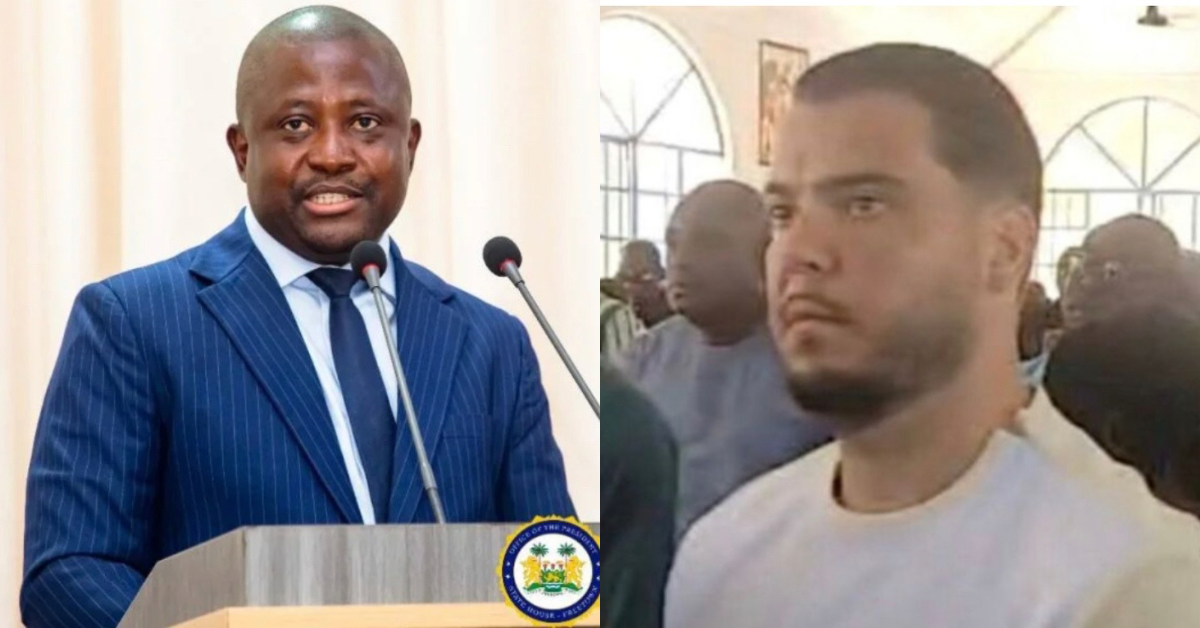The Sierra Leonean government has completed its initial review of extradition documents provided by the Dutch government concerning wanted drug trafficker Jos Leijdekkers.
Attorney General and Minister of Justice, Alpha Sesay, confirmed the development but remained tight-lipped on the next steps, citing the need for ongoing police investigation updates.
The Dutch government had submitted a file requesting the extradition of Leijdekkers, whom they state has been convicted and sentenced for crimes committed in the Netherlands. Upon receiving the documents, Attorney General Sesay had indicated that a decision would follow a thorough review.
In his recent update, Sesay acknowledged the completion of the document review, stating, “We have read the documents in its entirety, and where we are to step in, has not been triggered yet. We will be triggered after receiving updates from the police investigation.”
A point of contention has emerged regarding the identity of the individual in custody. While the Dutch government identifies him as Jos Leijdekkers, the Sierra Leonean government, during a recent press conference by the Ministry of Information and Civic Education, identified the suspected drug lord as Umarr Sheriff. Inspector-General of Police, William Fayia Sellu, reportedly confirmed that the individual’s face matched the name Umarr Sheriff on Sierra Leonean records.
When questioned about this discrepancy, Attorney General Sesay stated, “I don’t know if the Government said the person whom they have is Umarr Sheriff.”
Despite the identity question, Sesay emphasized the government’s seriousness in addressing matters of Mutual Legal Assistance and transnational crimes. He clarified the legal process under the 1974 Extradition Act, explaining that after the requesting state completes its findings, the evidence for extradition assistance is submitted to Sierra Leone through the Attorney General’s office for review.
Sesay also revealed that he has had a telephone conversation with the Dutch Minister of Justice regarding the matter. He firmly stated that investigations fall under the purview of the police, not the Attorney General’s office. He further explained that once the police conclude their investigation, “it is the responsibility of the Attorney General to take the papers to court.”












I don’t see any sense in this this is just a bundle of write up to engage people in reading is the said drugs lord in Sierra Leone has the government accepted that the man is in the country this is what people are expecting i know this media to be credible don’t write for write sake write with the main information that people may want to know
Don’t play or else you will learn and you will learn the hard way.
If they could see or hear how they are disrepecting the sierra leone president and in his goverment in Holland , by saying he is not a man enough to exchange his daught and his wife for money . And this is belive by the locals in Holland it also brings shame to us as sierra leoneans living in this country for just an idiot that has no principles stay in our home land destroying images out there. Why are you selling yourselves so cheap? Is it for phsycal or for mental porvaty? I want to make this clear to you all Sierra is far rich than Holland but they very poor mentally and phycally because of mismanagement and corruption. The moral of the story is kick the drug dealers out of your country.
Nonsense write up this article does not match with the head limes sierraloaded Tey to go over the article before giving the head lines